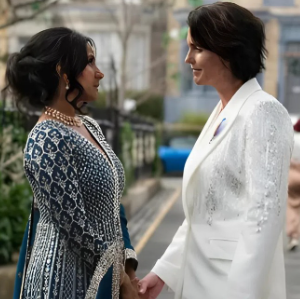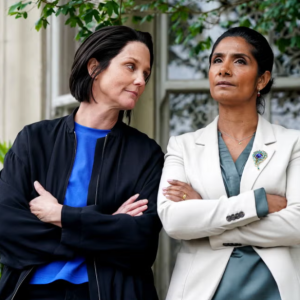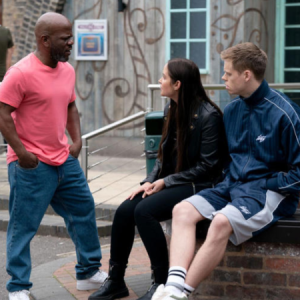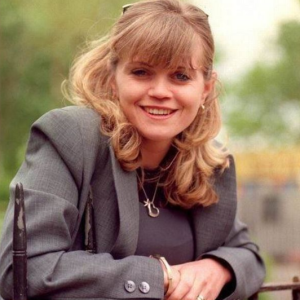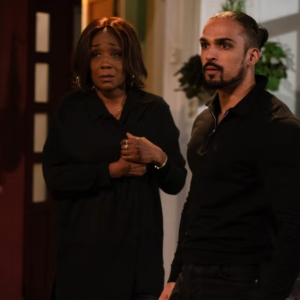In a significant move reflecting its ongoing commitment to tackling pressing contemporary social issues, the iconic BBC soap opera EastEnders is reportedly developing a spin-off inspired by the critically acclaimed Netflix drama Adolescence. This initiative signals a profound exploration into the dangerous landscape of online misogyny and toxic masculinity, mirroring a global conversation on these pervasive societal challenges. The planned spin-off, a documentary for BBC Three, aims to directly address the spread of misogyny on the internet, featuring cast members from the flagship show, and is slated for release concurrently with a related, hard-hitting storyline on the main EastEnders programme later this year.
The choice of Adolescence as a creative touchstone is particularly telling. Written by acclaimed actor Stephen Graham, the Netflix series captivated audiences and critics alike with its unflinching portrayal of a 13-year-old boy, played by Owen Cooper, who commits a shocking act of violence against a female classmate after experiencing rejection and mockery online. The show was lauded for its raw, authentic depiction of the pressures and psychological vulnerabilities that can lead to extreme behaviours among teenagers, specifically shining a spotlight on the insidious nature of toxic masculinity in a digital age. Its critical success, including Emmy nominations for its cast, underscored the powerful resonance and urgent relevance of its narrative, making it an ideal, albeit challenging, inspiration for EastEnders to draw from. By aligning with a series that delves so deeply into the dark consequences of unchecked male aggression and internet culture, EastEnders is positioning itself to contribute to a crucial national dialogue.
This isn’t EastEnders’ first foray into such complex thematic territory. The BBC soap has a long and distinguished history of reflecting and shaping public discourse on difficult social issues, from tackling HIV/AIDS in the 1980s to exploring domestic violence, drug addiction, racism, and LGBTQ+ rights in subsequent decades. It often serves as a mirror, albeit a dramatic one, to British society, using its widely recognised characters and familiar settings to humanise complex problems. In recent years, EastEnders has already begun to explore the very ground that Adolescence so starkly illuminates, through the character of Joel Marshall, portrayed by Max Murray. Joel’s storyline has intricately woven an exploration of incel culture and its devastating repercussions into the fabric of Walford life.
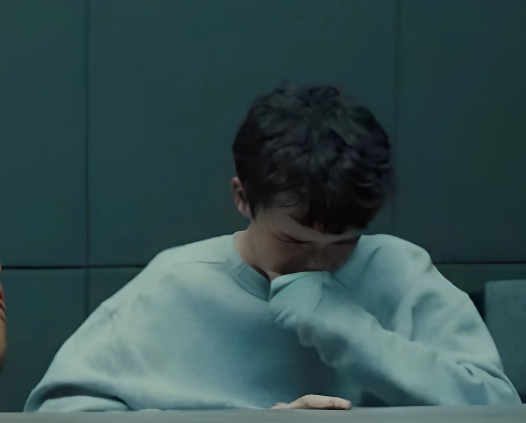
Joel Marshall’s narrative arc has been a pivotal example of the soap’s willingness to confront the disturbing rise of online radicalisation and misogynistic ideologies. Introduced with a certain vulnerability, Joel’s character progressively became embroiled in an “involuntary celibate” (incel) plotline, depicting how young men can be drawn into dangerous online communities that foster resentment, misogyny, and a sense of entitlement over women. Viewers have witnessed Joel engage in a series of increasingly extreme and disturbing behaviours, illustrating the gradual descent into a mindset shaped by hate and perceived victimhood. His actions have included the deeply invasive act of leaking sex footage, a clear violation of privacy and an act often categorised as revenge porn, demonstrating a profound lack of respect and an attempt to control and humiliate. Further escalating his trajectory, Joel also assaulted a stranger, a horrifying manifestation of unprovoked aggression and a disturbing detachment from the value of human safety and dignity. Perhaps one of the most complex and long-lasting consequences of his storyline involves fathering a child with Avani Nandra-Hart, an event that forces both characters and the audience to grapple with the ripple effects of his toxic behaviour on innocent lives and the wider community.
Joel’s character serves as a stark embodiment of the themes of toxic masculinity, online radicalisation, and the dangerous consequences of unchecked misogyny that are at the heart of Adolescence. His rejection by society, or at least his perception of it, fuels a bitter anger, which finds an outlet and reinforcement in online echo chambers. The dramatic unfolding of his storyline in Walford allows EastEnders to dissect the psychological processes at play – the resentment, the dehumanisation of women, the sense of victimhood – and to vividly portray the real-world harm that such ideologies inflict, not only on the immediate victims but also on the perpetrator himself, his family, and the community. By showing the development and impact of an incel storyline within a fictional, yet relatable, setting, EastEnders provides a visceral understanding of a phenomenon that is often discussed in abstract terms.
The planned BBC Three documentary spin-off offers a unique complementary approach. While the main show’s fictional storyline with characters like Joel can dramatise the consequences, a documentary format allows for a more direct, educational, and potentially preventative exploration. Featuring EastEnders cast members could lend the project a familiar and trustworthy face, encouraging a broader audience, particularly younger viewers, to engage with what might otherwise be perceived as a challenging or niche topic. A documentary can incorporate expert commentary, real-life testimonies, and direct factual information about the nature and dangers of online misogyny, how it spreads, and what steps individuals and communities can take to counter it. It has the potential to move beyond the narrative and into practical advice, fostering critical thinking about online content and promoting healthier attitudes towards gender and relationships.
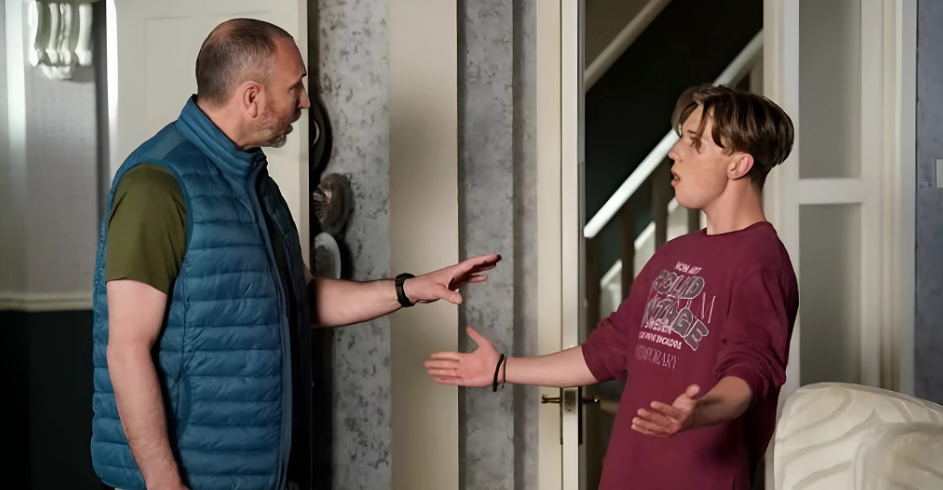
The overarching goal of this ambitious initiative is to ignite vital conversations about misogyny, toxic masculinity, and the complexities of online behaviour among young people. In an era where digital platforms increasingly shape identities, relationships, and worldviews, and where harmful ideologies can proliferate with alarming speed, such discussions are not merely important but absolutely essential. By leveraging the storytelling prowess of EastEnders and drawing inspiration from the impactful Adolescence, the BBC is aiming to create a multi-faceted campaign that raises awareness, challenges stereotypes, and encourages a more critical engagement with the digital world. Fans can anticipate that the combined fictional drama on the main show and the factual insights of the documentary will bring the hard-hitting social commentary seen in Adolescence directly to the familiar streets of Walford, prompting reflection and dialogue across generations and communities. This represents a significant and courageous step for EastEnders, reinforcing its role not just as entertainment, but as a powerful platform for social commentary and positive change.

